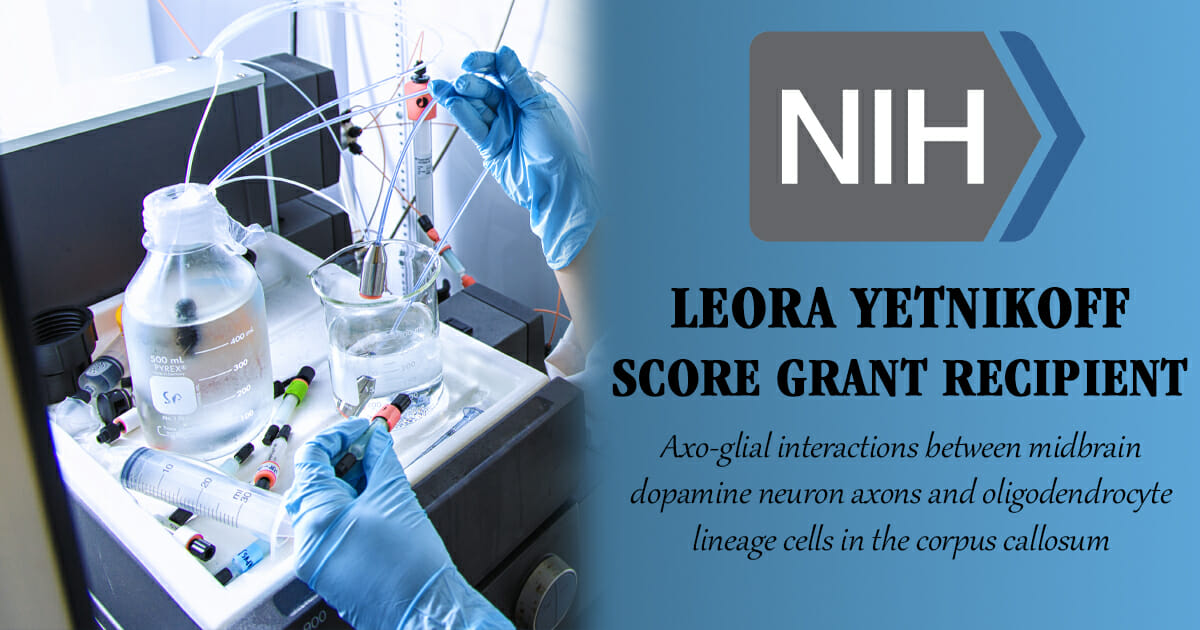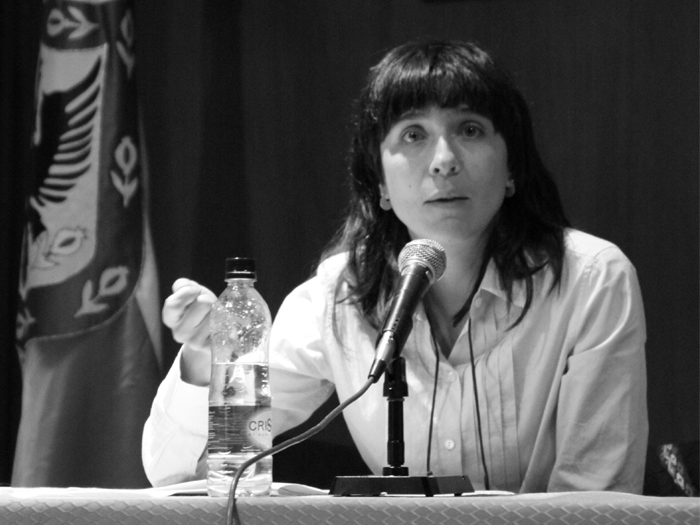Leora Yetnikoff, an Assistant Professor of Psychology at the College of Staten Island, has received a three-year $391K SCORE Award from the National Institutes of Health (NIH) for her research titled “Axo-glial interactions between midbrain dopamine neuron axons and oligodendrocyte lineage cells in the corpus callosum.” This is the first time that a CSI faculty member has received a SCORE Award, which the NIH presents to institutions of higher learning that have records of graduating biomedical students from groups that have been historically underrepresented in the field. Yetnikoff says that while the science she proposed won her the award, the hard work of then Associate Provost for Graduate Studies, Research, and Institutional Effectiveness Margaret-Ellen (Mel) Pipe and her team granted her the necessary award eligibility. As a result of this breakthrough achievement, other faculty members at CSI are now eligible to apply for similar grants.
Yetnikoff’s research challenges a century-long established belief that the principal cells in the brain—neurons—can only communicate with other neurons. Her study investigates whether glial cells, another type of brain cell that control how quickly neurons can function, can actually communicate with neurons as well. Yetnikoff said that “We are learning more and more that glial cells ‘listen’ to neuron signals, and actually change the way they interact with neurons based on their interpretation of these signals.”
To shed further light on her research, Yetnikoff explained, “Almost everyone is familiar with the term ‘dopamine’ because of the roles of this neuron signal in rewards and various neuropsychiatric diseases. Based on preliminary data, the hypothesis outlined in my proposal is that, in addition to their known conventional roles in communicating with other neurons, dopamine neurons also communicate with glial cells. Because of dopamine’s wide-ranging roles in brain and behavior across species, including humans, this work will hold important implications about brain function and disease, including schizophrenia, drug addiction, and multiple sclerosis.”
Saying that receiving this award tells Yetnikoff that she and her fellow researchers are on the right track, she further noted that “My students, collaborators, and I worked tirelessly together—remotely—during a pandemic to put out a competitive proposal with sound scientific merit and it is extremely gratifying and rewarding to learn that these efforts paid off.” The grant will also allow Yetnikoff to increase the number of undergraduates who will receive training in her lab.
Dan McCloskey, Chair of the CSI Department of Psychology, further underscored the importance of this grant for the College and its students. “We have seen other CUNY colleges really benefit from SCORE funding, and the net result is a greater population of students who go on to careers in research and medicine. Diverse students bring diverse perspectives, which means new ideas for the treatment and cure of diseases. Dr. Yetnikoff’s award is an important first step to open the door for more faculty and students to add to this workforce.”
By Terry Mares
















